…And What Do You Do?: What the royal family don’t want you to know
£9.60£10.40 (-8%)
The royal family: the quintessential British institution or an antiquated, overindulged drain on the taxpayer?
For all their foibles and idiosyncrasies, the royal family wield considerable influence and yet rather than facing the scrutiny their position merits, they enjoy sickeningly obsequious coverage which reports their activities with breathless awe.
And What Do You Do? is a provocative and hard-hitting analysis, exposing the royals extravagant use of public money and the highly dubious behaviour of some among their number. Former Minister of State and current Privy Counsellor Norman Baker breaks ranks to explore the wider role the royals play in society, including the link with House of Lords reform and the constitutional position of the monarch.
Now fully updated to include new material on Prince Andrew, Prince Harry and Meghan Markle, this irreverent and uncompromising account asks urgent questions about the future of the world s most famous royal family.
Read more
Additional information
| Publisher | Biteback Publishing, Updated edition (8 Sept. 2020) |
|---|---|
| Language | English |
| Paperback | 448 pages |
| ISBN-10 | 1785906216 |
| ISBN-13 | 978-1785906213 |
| Dimensions | 12.7 x 3.18 x 19.69 cm |

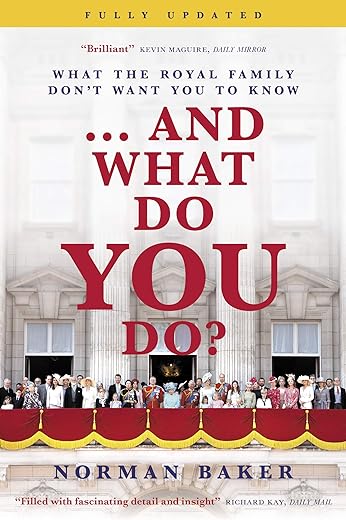
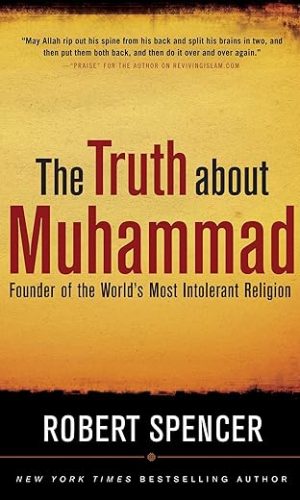
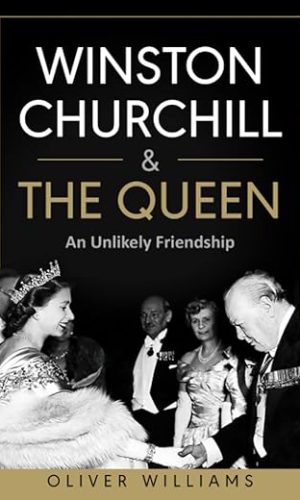
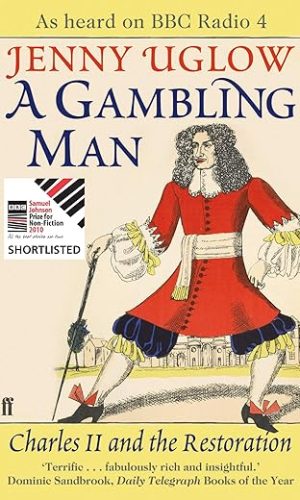

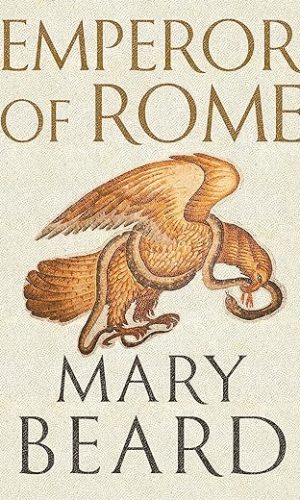
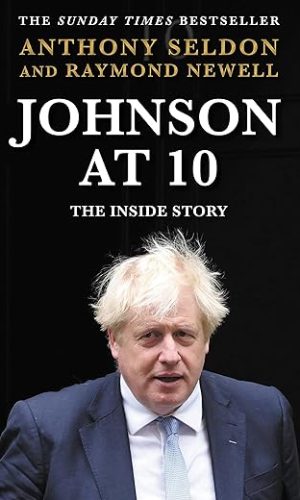

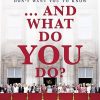
by Jim Kelly
This was a good critique on the so called British.(English) royal family. There were a number of facts about their finances I was unaware of. I had no idea of the level of their collective wealth and how much the taxpayer subsides them. They are meant to to be superior to ordinary mortals. This books illustrates how greedy and useless they are.
by Sara Paine
Here’s the thing … at the start of the twenty first century, the United Kingdom has a hereditary head of state descended from a conqueror who seized the country by military force 954 years ago, an unelected second chamber full of friends of whichever Prime Minister happens to be in power at the time and two thirds of the land is still owned by the descendants of the 200 or so Norman Barons who came over with the aforementioned conqueror in 1066.
It is mainly the first of these – the role of the monarchy – that former Lib Dem MP Norman Baker turns his attention to in this substantial (404 pages) and well-researched book. His overall conclusion is that the Royal Family still wields considerable influence behind the scenes and, considering themselves above the law, they are aided and abetted by whichever Government of the day is in power which ensures that the rules that apply to everyone else are routinely skewed to benefit the Royal Family’s own personal interests.
The book explores in forensic detail all the ways in which the Royal Family benefits financially and politically from its position at the top of British society and how, with an unelected, unaccountable Head of State, there will always sadly be opportunities for self-aggrandisement and personal enrichment from some of its (many) members.
There are many, many examples of how this happens, but here are some of the takeaways:
1) British taxpayers fund over a hundred Royal buildings, including Buckingham Palace, St James’s Palace, Clarence House, Marlborough House Mews, Kensington Palace, Windsor Castle, Frogmore House and Hampton Court Mews. The Queen personally owns Balmoral and Sandringham, which were bought with public funds, but they qualify for taxpayer support as they are used for official business and they remain the Queen’s private property.
2) The Queen is estimated to be personally worth at least £350 million. Although she is not legally obliged to pay tax, she ‘chose’ (under public pressure following the Windsor Castle fire) to start voluntarily paying income and capital gains tax in 1992. A 2017 data leak of the Paradise Papers also revealed that the Duchy of Lancaster, which manages investments for the Queen’s £520m private estate, invests around £10m in the Cayman Islands and Bermuda-based funds – British overseas territories with no corporation tax and at the centre of the offshore financial industry.
3) Wills are public documents in the UK and have always been open for inspection as an essential safeguard to prevent theft and malpractice. However, since 1911, the Royal Family has been allowed to ‘seal’ selected wills – or declare them private – in the interests of upholding the dignity of the Crown. This means that exact figures on the wealth of the Royal Family are hard to come by.
4) The Queen presides over a merit-free awards system that maintains a top-down mediaeval hierarchy of court favourites that has existed for 700 years. A lot of the time, she awards honours to her own family for no apparent reason. Prince Charles now has 31 decorations available to him to wear and even Princess Anne holds 24 military positions. The Order of Merit – limited to 24 members and given to reward those who give ‘exceptionally meritorious service towards the advancement of art, literature and science’ – also includes amongst its members the Duke of Edinburgh and Prince Charles.
5) Most members of the Royal Family still charter flights or helicopter flights at public expense instead of using much cheaper methods such as scheduled flights, trains or even cars. In the most recent figures, a total of £69.4 million of taxpayer funds went on official duties such as travel, as well as other costs including staff, hospitality and property maintenance – a rise of £2.4m or 4% from £67m in 2018/2019. Recent examples of taxpayer funded travel costs include Harry and Meghan’s tour of southern Africa: £246,000, the Prince of Wales’ flights for a two-day visit to Oman: £210,345, Prince Andrew taking a private plane to Northern Ireland to attend the Royal Portrush Golf Club’s Open championship: £15,848 and Princess Anne taking a charter flight to Rome costing £16,440 so she could watch Scotland play rugby (in her capacity as patron).
6) The Privy Council, (a formal body of advisers to the Sovereign which originated in Anglo Saxon times) can amend Acts of Parliaments without anything being reported in the Press. Prime ministers use the Council, which officially reports directly to the Queen, to make arbitrary decisions for which they are not accountable or subject to democratic inspection. These include allegations that the British intelligence services were involved in torture during the so-called ‘War on Terror’ and the forced deportation of the Chagos Islanders to make way for an American military base.
7) Despite being ‘public servants’ on the taxpayers’ payroll, the Royal Family is exempt from the Freedom of Information Act and Is not obliged to abide by the standards of behaviour set out by The Committee on Standards in Public Life. This means that they can carry out their roles in almost total secrecy (unlike accountable politicians, councillors, Lords etc) and are free to accept privately any holiday, the use of a castle, private jet, luxury car, yacht or loans all without any requirement even to record these gifts (although official gifts are recorded). British taxpayers have no right to know who is buying favour with the people who form an integral part of their constitutional system. The questionable business relationships and friendships of some family members such as ‘Air Miles Andy’ Prince Andrew are something that no other public servant could get away with.
8) The Queen Mother acquired assets worth up to £70m in her lifetime which were then bequeathed to her daughter the Queen free of inheritance tax, thanks to a private deal between the Queen and John Major when he was Tory prime minister in 1993.
9) The Royal Household pays face value for the Maundy Thursday coins that the Queen distributes every Easter (one for each year of her age), however the taxpayer pays for the full cost of the specialist minting, which is never revealed to the public for ‘commercially sensitive’ reasons.
10) The Duke of Edinburgh still receives an annual allowance of £359,000 from taxpayers despite retiring from being a ‘working Royal’ in 2017. (The Queen makes up the shortfall needed to maintain his office from her private funds, the Duchy of Lancaster). There are currently 12 working Royals which entitles those individuals to certain privileges, such as taxpayer-funded security which costs a total of around £106 million per year. Working royals also tend to have access to ‘grace and favour’ residences and many are also gifted private country homes by the Queen in her private capacity. Although many royals have access to the Sovereign Grant for official royal duties, the cost of their day-to-day lives is not covered by public funding. Surprisingly the idea of a ‘working royal’ is a mid-20th century one.
11) The Royal Family continues to expand. At the 2018 Trooping of the Colour, the Queen was surrounded on the balcony at Buckingham Palace by 44 members of her extended family (many of whom you will not have heard of).
12) The British Royal family is at the top of the European Royalty league in the receipt of public money receiving around £82 million in 2020. Some comparable figures are:
Netherlands (2020): £39 million
Norway (2019): £34 million
Belgium (2018): £12 million
Spain (2018): £7 million
Royal Families in Spain, the Netherlands and Denmark all make do with two palaces each; the UK Royal Family has 15 palaces plus Balmoral, Sandringham and those owned by the Duchy of Cornwall.
Full marks to Norman for his detailed and up-to-date research that has gone in to this book against, it appears, opposition from those who don’t appear to be that keen that this kind of information is more widely known.
At the end of the book’s acknowledgement, the author notes sardonically: ‘Lastly a reverse acknowledgement of thanks to the Lord Chamberlain, the Cabinet Office, The Privy Council and Prince Charles, all of whom have given every possible assistance short of actual help.’
by jimbo
A VERY revealing read !!!
by GERALD
This book. should be read by all Royalists. There is no bowing and scraping, no ‘How wonderful they are’s and aren’t we lucky to have them’s, just the truth. Here at long last is a writer who is not impressed by any of them, and not afraid of going on to MI5s list, or ruining his chance of becoming a Knight or a Lord.
by Doc Culbard
In recent years two books have been published that have drawn attention to the nature and function of the British monarchy and its constituent royal family. In June of this year [2023] there was the release of Abolish the Monarchy: Why We Should and How We Will. This was written by Graham Smith, the CEO of Republic, the British Republican Movement. The title of this publication accurately mirrors the content of the book (see my review of this book).
A primary focus of Graham Smith’s overall argument is that, in a nation that loudly proclaims its democratic credentials, there exists a family that is privy to government secrets and favours, has private and easy access to ministers of the British government, lives in jealousy protected wealth and privilege through the past and present exigencies of the British taxpayer, and collectively maintains the fiction of being divinely appointed.
Graham Smith’s accumulated arguments for the abolition of the monarchy are probably the most convincing since the 2019 publication of Norman Baker’s book …And What Do YOU Do? What The Royal Family Don’t Want You To Know. As compared with Smith’s general argument against the monarchy, Baker probes the nature and character of the royal family. It is a clear-eyed assessment and examines the royal family in terms of its strengths, weaknesses, and eccentricities. As such, it falls short of a cry for the abolition of the monarchy, but challenges those who care for the monarchy, assists those who wish for its reform, and, overall, questions the institution’s suitability as a contemporary requirement for the UK.
Baker’s approach can be summed-up in the words that appear on the back cover of the book: The royal family – the quintessential British institution or an antiquated, overindulged, drain on the taxpayer? Yet, Norman Baker recognizes that the royal family still wields considerable power and influence, as well as constant and favourable media attention. However, the royals still refuse to face public scrutiny through legal and forensic examination of their affairs (monetary, and otherwise), election to office, and subjection to the laws of the UK in the same way that face the citizens of the nation, including its politicians.
Each chapter of this book is filled with mind-boggling information, critical insights, and awkward questions for royalty. As an example, the relatively short chapter entitled The Royal Free narrates the fact that many members of the extended royal family enjoy almost unlimited access to free holidays, expensive gifts, luxury cars, use of private jets, designer clothes, and other perks of their job and their wide-ranging, and often questionable, personal relationships. All this without constitutional accountability or reference to their ultimate paymaster, the British people.
Norman Baker is a former Liberal Democrat Minister of State and is a current member of the Privy Counsel. As such he has insights that go beyond that of a regular politician or political journalist and can talk on such issues as reform of the House of Lords and the constitutional position of the monarch, as well as the monarch’s relationship vis-à-vis the Established Church of England. The latest edition of …And What Do YOU Do? What The Royal Family Don’t Want You To Know has been updated to include new material on Prince Andrew, Prince Harry, and Megan Markle. This uncompromising account of the royal family has urgent insights and asks important contemporary questions about that family and its future. It is an ideal companion piece to the above-mentioned book by Graham Smith. Read both and be updated and enlightened.